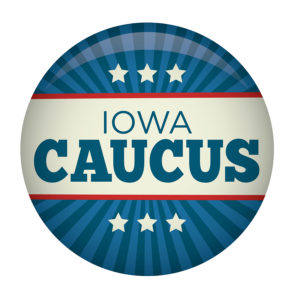EDITOR’S NOTE: For another view, see Point: It’s Time for a Fairer Nomination Process
On income inequality rankings, Iowa comes in third best, with narrower gaps between rich and poor than any state except Alaska and Utah. But when it comes to choosing presidential candidates, Iowa’s process is exceptionally unequal.
On February 3, when Iowa holds the much-anticipated “first in the nation” caucus, low-income residents will face multiple barriers to participation.
First, you have to be able to show up in person by 7 p.m. and stay for an unspecified number of hours. That knocks out people who work in the evening and can’t take time off.
Think about the second-shift workers at the poultry and pork processing plants that dot the state. Think about the students who bartend to cover their tuition and other people who have to work multiple jobs to make ends meet. Think about the parents who can’t afford night-time child care. They’re all excluded.
Iowa’s Latinx residents, with a poverty rate nearly double the state average, are particularly likely to face economic barriers to participation — on top of language barriers. The Iowa Democratic Party is supposed to provide translation support on request, but you wouldn’t know that from looking at its website.
Iowa’s strict voter ID law is another potential hurdle. The League of United Latin American Citizens (LULAC) sued to overturn this requirement, arguing that Latinx residents (as well as students) are less likely to have a driver’s license or state-issued ID card. While a District Court judge recently overturned other parts of the state’s 2017 voter suppression law, he allowed the voter ID requirement to stand.
LULAC has responded by redoubling its efforts to ensure Latinx residents can exercise their constitutional rights at the polls. Nick Salazar, LULAC’s Iowa state director, said they are on track to register 10,000 new Latinx voters.
They’ve also been holding caucus trainings to help newbies feel more comfortable in what can be a very intimidating setting.
Unlike primary participants who fill out ballots in the privacy of a voting booth, Iowa caucus-goers must declare their choice of candidate in front of their neighbors. Imagine how unnerving it might be to wind up in the same caucus room as your boss or your landlord. What if you back different candidates?
LULAC is also taking advantage of a new Iowa Democratic Party initiative allowing a limited number of “satellite” caucuses for communities with special needs, including non-native English speakers. Spanish-English bilingual caucuses will take place for the first time this year in Muscatine and Des Moines.
While Iowa’s Latinx community faces high barriers to caucus participation, the hurdles are even higher for the state’s formerly incarcerated population. Iowa is the only state in the nation that still permanently bans all people with felony convictions from voting, unless they apply for and receive a waiver from the governor.
The Restore Your Vote campaign estimates that this draconian law disenfranchises 10 percent of Iowa’s black voting-age population and 2 percent of the state’s total voting-age population. Research also shows that incarcerated people have much higher than average poverty and jobless rates — both before and after they serve their time.
The overwhelming whiteness of Iowa’s population (90 percent) has long made it a controversial site for the nation’s first presidential candidate contest. The barriers to caucus participation for disadvantaged groups make the state’s privileged political status even more problematic.
To have a true democracy, we need voting to be accessible for all citizens, no matter how much money they make, how well they speak English, the color of their skin, or whether they have served time in prison and paid their debt to society.
Our votes will only really count if we can all vote.

